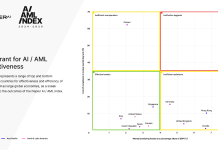Business email compromise (BEC) schemes have emerged as a sophisticated form of cybercrime, targeting both businesses and individuals by tricking them into sending money or sensitive information to fraudsters.
According to ACA Group, these attacks are often orchestrated through phishing emails crafted to appear as if they are coming from a legitimate source, such as a high-ranking company official or a trusted vendor. The emails typically request transfers of funds or sensitive data, playing on the recipient’s trust and urgency.
The funds obtained through BEC schemes can serve as a vehicle for money laundering, facilitating the movement of illicit gains into the financial system. For instance, an employee might receive a fraudulent email, seemingly from a company executive, instructing them to transfer money to a particular account. Without proper verification, the transferred money ends up in accounts controlled by criminals, who then launder it for various illicit activities.
Invoice fraud is another method used in BEC schemes to launder money. Attackers send fraudulent emails posing as suppliers or vendors, requesting payments for non-existent or inflated invoices. When these payments are made, the fraudsters divert the funds for illegal purposes.
To shield against the threat of BEC, businesses must fortify their email security measures, incorporating tools like spam filters and implementing two-factor authentication. Employee education is crucial, empowering staff to identify and report dubious emails. Verifying the legitimacy of payment and information requests is another vital step in preventing BEC fraud.
Falling victim to a BEC attack necessitates immediate action, including reporting the incident to law enforcement and seeking legal counsel. Prompt reporting can prevent future attacks and assist in the recovery of lost funds, mitigating the impact on the business.
Read the post here.
Keep up with all the latest FinTech news here.
Copyright © 2024 FinTech Global











